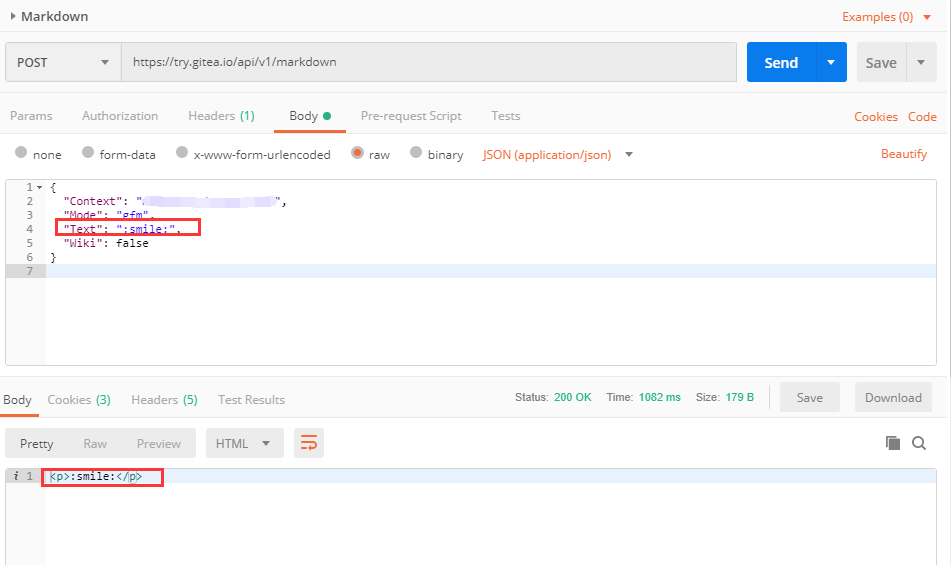Closed
Description
- Gitea version (or commit ref): try.gitea.io
- Can you reproduce the bug at https://try.gitea.io:
- Yes (provide example URL)
- No
- Not relevant
Description
https://try.gitea.io/api/v1/markdown does not parse emoji in markdown text.
For reference, here is what GitLab's markdown API returns:

